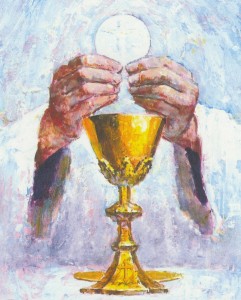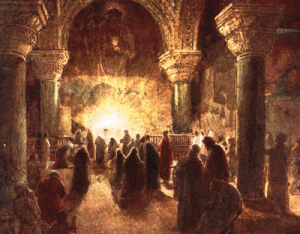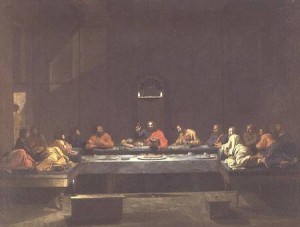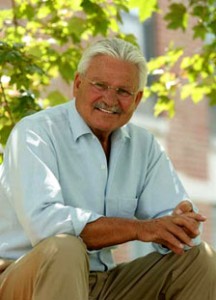
Christ is Present
And he took bread, gave thanks and broke it, and gave it to them, saying, “This is my body given for you; do this in remembrance of me” (Luke 22:19 NIV).
Remembrance is the Greek word, anamnesis. Anamnesis does not mean memory by mental recall, but the fresh experience of a past event by reenactment. This mysterious work of the Holy Spirit brings the evening of the Last Supper forward in order that the people of God may experience the crucified and resurrected Christ afresh. At the Last Supper, the apostles realized all the benefits of the Cross before Christ actually died. In the same way, when we partake of the Body and Blood of Christ, we encounter afresh all benefits of Christ work on the cross: freedom, forgiveness, life-transformation, etc. These benefits are imparted to us at the moment we partake of the Body and Blood of Christ (Luke 22:19; 1 Cor. 11:23-26).
I believe music-centered worship has indeed become a common way of thinking about the presence of God. However, it is an extremely limited understanding of God’s presence. . . . The church has always believed not only that God is everywhere but also that he is made intensely present to his church at worship. God is there in the gathering of the assembly, in song, in Scripture reading, in prayer, and especially at bread and wine. Jesus told his disciples that there is a way to remember him (the force of anamnesis is “to make me [Christ] present”). He is right there at broken bread and poured-out wine.
Robert E. Webber, Ancient-Future Worship: Proclaiming and Enacting God’s Narrative. (Grand Rapids: Baker Books, 2008), 133-134.



